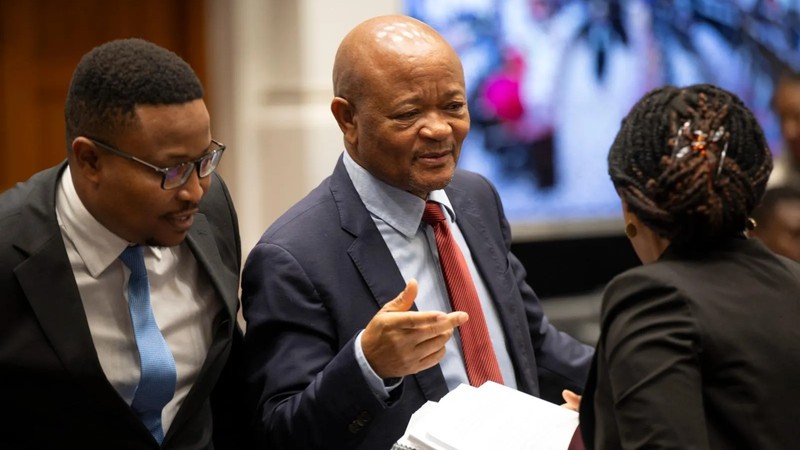Suspended Police Minister Senzo Mchunu says the National Political Killings Task Team (NPKTT) has never been part of the South African Police Service (SAPS) organogram or organisation structure and must therefore be distinguished from an official policing unit.
Testifying before Parliament’s committee probing explosive allegations by KwaZulu-Natal Police Commissioner Lieutenant-General Nhlanhla Mkhwanazi, Mchunu explained that, unlike formal “units” in SAPS, which are integrated into the police organogram, “task teams” are temporary and operate outside the official structure.
“As a practice in SAPS, units become part of the organogram. That includes, for instance, the Cato Manor unit. But this one, the political task team, has never been part of the organigram,” Mchunu said.
He added that this status remained unchanged even after he became Minister of Police in 2019. “We reviewed the organisational structure and aligned it with SAPS’s strategic and annual plans. In May this year, a new organogram was signed off after a long review process, and the NPKTT was not part of it,” he told the committee.
Responding to questions from evidence leader Advocate Norman Arendse SC, Mchunu expressed concern over testimony from Major General Petronella Van Rooyen at the Madlanga Commission, who allegedly claimed there was no distinction between a task team and a unit.
“I was very worried by that, because there has always been a clear distinction,” Mchunu said. He described task teams as temporary groupings formed to address specific issues, made up of SAPS members drawn from existing posts.
“Once the mission is accomplished, they return to their original duties. You don’t appoint people from outside, and you don’t create a permanent gap,” he added.
Mchunu said he had long been aware of political killings task teams in KwaZulu-Natal, including ones established in 2014 and 2016. The NPKTT, formed in 2018, followed a directive from President Cyril Ramaphosa after a spate of political assassinations, including that of Musawenkosi “Maqatha” Mchunu.
The President’s intervention led to the formation of a three-tier response mechanism: an inter-ministerial committee, a steering committee, and an operational-level task team, which became known as the NPKTT, he said.
Mchunu also confirmed awareness of a 2019 study on specialised SAPS units, initiated in response to the President’s call during that year’s State of the Nation Address. The aim, he said, was to improve coordination and resources for such units.
During the hearing, Arendse questioned Mchunu on the timing of discussions around the task team in November 2024.
While General Shadrack Sibiya claimed discussions took place that month, National Commissioner Fannie Masemola disputed this, saying no talks occurred before a ministerial directive issued on 31 November.
Mchunu confirmed that he had attended three meetings that month, including a large one on the 22nd.
Politics
